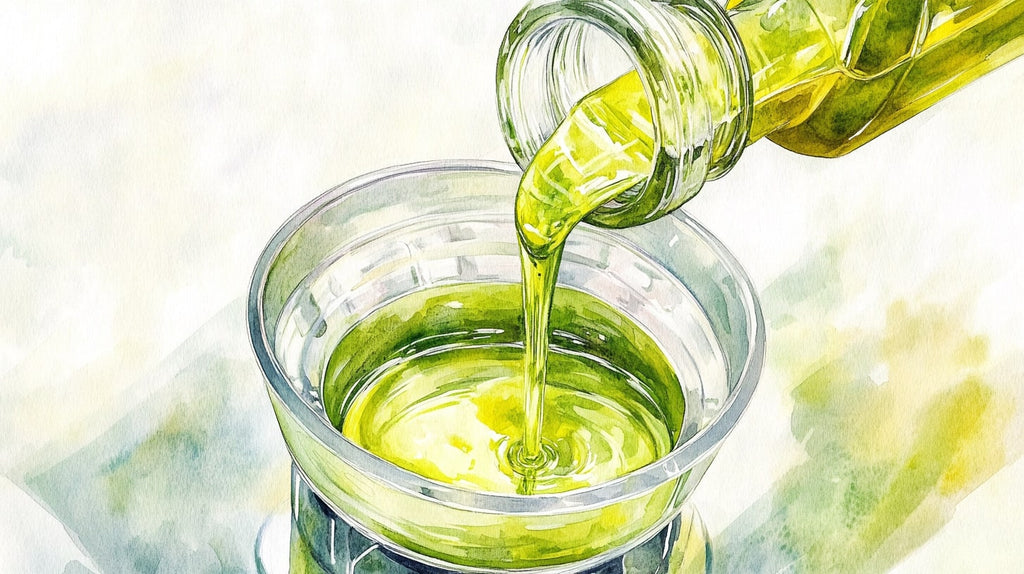In recent years, olive oil has gained a reputation as a superfood, largely due to its high antioxidant content. From polyphenols to vitamin E, the health claims surrounding olive oil make it seem like an essential part of any diet. But are we overhyping the benefits? Is it possible that too much of a good thing might actually work against your body’s natural detoxification processes?
In this article, we'll dive into some lesser-known aspects of olive oil's antioxidant properties, including how consuming too many polyphenols could slow down your body's detox pathways. We’ll also explore how combining olive oil with fiber-rich foods like beans may enhance its benefits for overall health.
Understanding Olive Oil Antioxidants and the ALDH Detox Pathway
Olive oil is rich in antioxidants, particularly polyphenols, which help neutralize free radicals and reduce oxidative stress. This is widely regarded as a good thing—after all, antioxidants are supposed to support your health by protecting cells from damage, right? However, there’s a balance to be struck.
One key detox pathway in your body is the aldehyde dehydrogenase (ALDH) pathway, which plays a crucial role in breaking down toxic substances like aldehydes. Aldehydes can accumulate from various sources, such as certain foods, alcohol, and even environmental pollutants. Your body depends on ALDH to detoxify these harmful compounds. But when the polyphenol levels in olive oil exceed 400 mg/kg, they may actually inhibit this detox pathway, slowing down the breakdown of aldehydes and other toxins.
Too many polyphenols can essentially overwhelm your system, interfering with your body’s ability to eliminate harmful substances efficiently. So, while olive oil offers many health benefits, overconsumption of extra-virgin varieties with extremely high antioxidant levels might not be the best idea for everyone, especially for those who are already burdened by environmental toxins or heavy metals.
How Olive Oil and Fiber Work Together for Better Detox
While the potential for antioxidant overload is something to consider, olive oil can still play a powerful role in supporting detox—particularly when paired with fiber-rich foods like beans, vegetables, and whole grains. Fiber helps bind toxins in the digestive tract, and when combined with olive oil, it can enhance bile production. Bile acts as a carrier for toxins, helping to flush them out of your body through the digestive system.
Incorporating olive oil with fibrous meals not only provides the antioxidant protection of polyphenols but also promotes better digestion and detoxification. The fats in olive oil stimulate bile flow, which plays a key role in metabolizing fats and removing waste products, including those stored in the liver. This synergy between fiber and olive oil can help cleanse your system more effectively than relying on antioxidants alone.
Finding the Balance: Not All Olive Oil Is Created Equal
It’s important to note that not all olive oils are the same. The polyphenol content in extra-virgin olive oil can vary widely, depending on the type of olives used, the climate, and how the oil is processed. Some varieties contain less than 100 mg/kg of polyphenols, while others can reach levels well over 400 mg/kg.
For most people, moderate consumption of high-quality olive oil—around 1 to 2 tablespoons per day—provides plenty of antioxidants without overwhelming the body’s natural detox mechanisms. If you’re concerned about slowing down detox pathways like ALDH, it might be wise to choose oils with moderate polyphenol levels or to limit your intake of the most polyphenol-rich varieties.
Cooking with Olive Oil: A Safe Bet for Antioxidant Benefits?
Another consideration is how olive oil behaves during cooking. Some antioxidants in olive oil, particularly polyphenols, are heat-sensitive, which means they may degrade at high temperatures. However, olive oil still retains its health benefits when used for low-to-medium heat cooking, such as sautéing or light frying. The antioxidants that survive the cooking process continue to protect both the oil and your body from oxidative stress.
When paired with fiber-rich foods, such as roasted vegetables, legumes, or whole grains, olive oil can enhance digestion, promote detox, and contribute to better overall health. The key is moderation and smart pairing with other detox-friendly foods.

So, Are Olive Oil Antioxidants Overhyped? It Depends on How You Use It.
While olive oil is undeniably rich in antioxidants, it's possible to get too much of a good thing. High polyphenol levels may slow down essential detox pathways like ALDH, which could counteract the benefits you're seeking. However, when used in moderation and paired with fiber-rich foods, olive oil remains a powerful tool for enhancing digestion and detoxification. Our olive oil consistently tests just below 400 mg/kg polyphenols via the Folin-Ciocalteau Method, typically ranging between 300-400 mg/kg at harvest time. We believe this is the optimal amount, as anything higher may impair detox pathways, while anything lower would not stand up to oxidation in the pan while cooking. While some laud their high polyphenol counts, such as certain Greek oils reaching up to 800 mg/kg, it’s actually not desirable if you're looking to keep your body free of free radicals on a regular basis.
If you're looking to balance the benefits of olive oil without overloading your system, choose oils with moderate polyphenol levels and pair them with fibrous meals for optimal detox. Interested in experiencing the perfect balance of flavor and health benefits? Try our family-farmed extra virgin Croatian olive oil, which provides a moderate polyphenol content ideal for daily use. It’s the perfect addition to a health-conscious diet without compromising your body's natural detox pathways.

